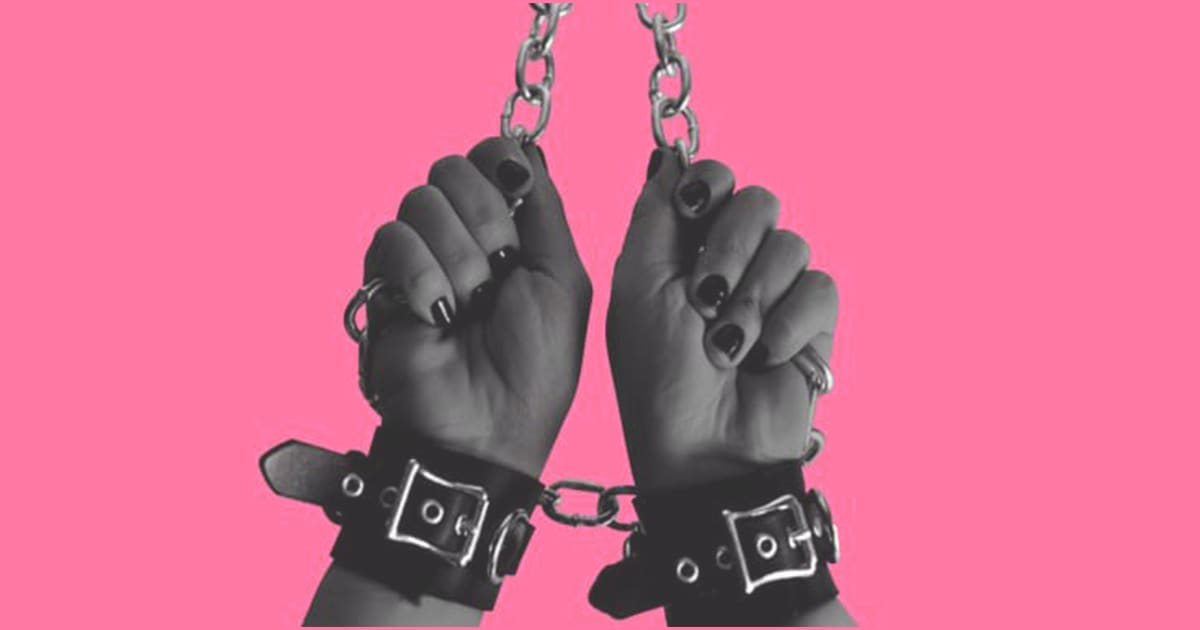BDSM: Why Am I Not Down With Being Submissive?

If I submit to a partner...do I submit to the patriarchy?
You know when you agree to something you don’t reaaally want to do because you want to prove that you are totally super chill, but when it comes time to do the thing, you realize you are actually not chill at all? Like, at all, at all? Yeah, me too.
My (failed) experience with BDSM
The first time a partner asked if I wanted to try being tied up in bed, I nodded along, because sexy cool girls like to be kinky, right? As soon as my wrists were bound, my body recoiled in discomfort. I could not help feeling deeply distressed by my lack of control.
Suffice it to say, that experiment ended quickly.

Before my brief stint in bondage, I had regarded BDSM with a sort of neutral disinterest — there’s absolutely nothing wrong with it, it just wasn’t for me. It was not until after my troubling experience that I even began to consider why being submissive made me so uncomfortable.
My initial issue with BDSM
Getting off on bondage isn’t bad or unhealthy, but the type of domination that BDSM plays at has unfortunate parallels in the sexual assault and abuse perpetrated against countless women. When television and film mainly portray women being bound and gagged in the context of assault, it is understandable for these actions to be associated with trauma. The most prominent mainstream representation of BDSM in recent years, the book and movie series Fifty Shades of Grey, pathologizes the main character’s sexual preferences while romanticizing an emotionally abusive relationship.
When we are characterized as gatekeepers of pleasure, rather than as actively pursuing it, sex becomes something that happens to us, not an act willingly chosen.
After years of fending off street harassment, dodging errant hands in bars, and politely declining persistent strangers, I feel the need to be in control of my body...at all times. Women are socialized to approach heterosexual sex as a negotiation: how much will you allow? When we are characterized as gatekeepers of pleasure, rather than as actively pursuing it, sex becomes something that happens to us, not an act willingly chosen. Reconciling my sense of bodily autonomy with my partner’s fantasies of domination seemed directly in contrast to the sexist objectification that feminism rejects.
Taking feminist praxis the most literally, being sexually dominated by a man can be understood as the result of culturally engrained misogyny and power dynamics. Choosing to submit to such domination could also be seen as problematic, in the same way that postfeminism encourages women’s willing participation in their own sexualization and objectification. Aren’t we supposed to stand up to men telling us what to do? Shouldn’t we fight back against men projecting ownership of our bodies? The mere concept of ceding control of my body to a man felt degrading at best, and threatening at worst.
While violence against women is a very real issue, there is a key difference between abuse and BDSM: consent.
So can I practice BDSM and still be a feminist?
Yeah bb. BDSM requires both partners to clearly communicate their desires and boundaries beforehand, ensuring that both voice their turn-ons and that neither is forced into anything they do not want. As for feminism...kink-shaming is just another way to police women’s sexuality. Additionally, the way most critics approach BDSM power dynamics tends to fall into heterosexual norms, referring to dominant men and submissive women.
However, dominant women or queer couples engaging in BDSM are usually not deemed “antifeminist,” implying that maybe the anxieties surrounding BDSM have to do more with gender roles than with who is doing what to whom.

So...what am I afraid of? More than anything, of not being in control: being vulnerable.
We often associate being vulnerable with being uncomfortable, but being vulnerable with my partner during sex is actually a huge act of loving trust. I am effectively telling my partner that I trust them so much that I will let them be in control. The word “confidence” actually means “with trust” — trusting my partner also means having confidence in myself to feel vulnerable and sexy at the same time. If we have communicated our boundaries beforehand, and I trust myself to use safe words if and when needed, there is no reason to feel unsafe.
Reminder: sex should be fun
While I may not be jumping for the handcuffs, I recognize the value in thinking of ways to compromise so that I'm not irrationally writing off something my partner would like, or demonizing a completely healthy turn-on. BDSM is all about consent and communication, so it's just as important that my partner knows my boundaries and desires as it is that I know theirs.
Embracing BDSM as a chance to explore my desires- rather than a negotiation of my boundaries- allows me to find pleasure in what was previously daunting.
Above all, sex is supposed to be fun. If you cannot enjoy it because you’re trying too hard to prove something to your partner, then you have made sex all about their pleasure, not yours. And that is definitely not feminist.




